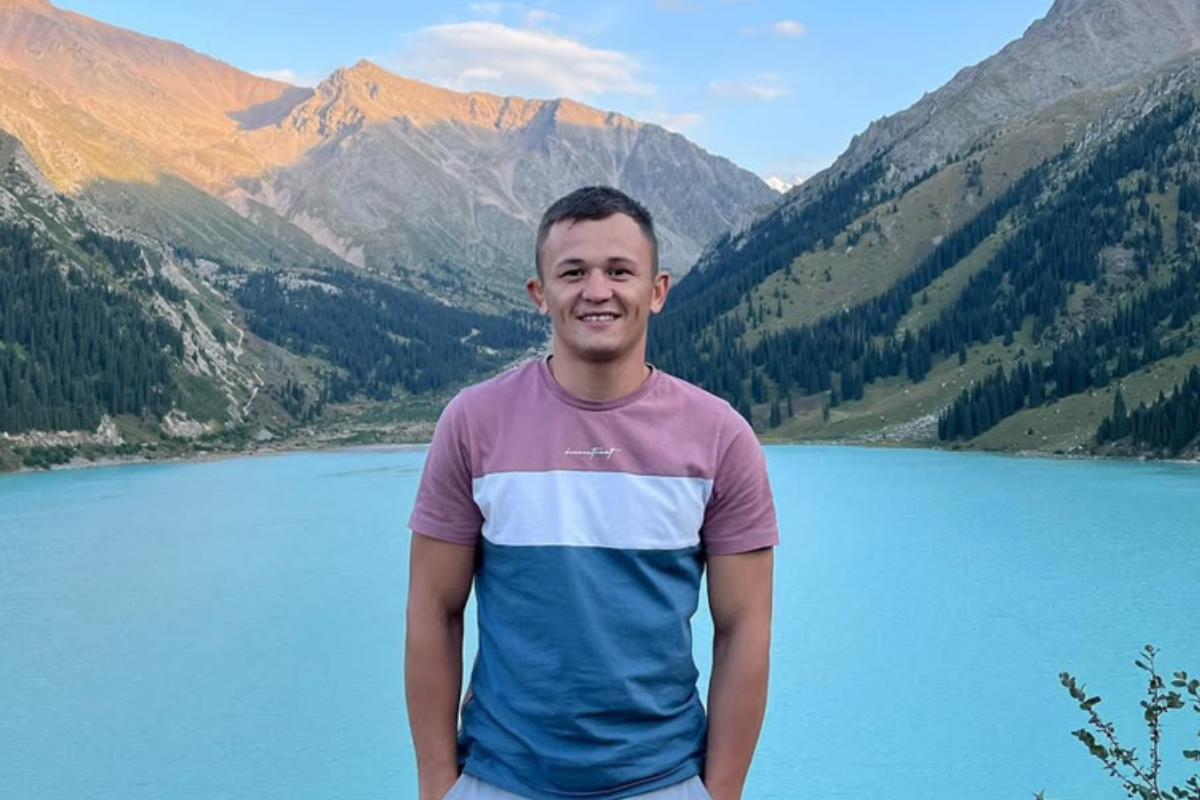

As UFC 315 is just a footstep away, fans are keeping a close eye on Kazakhstan’s Bekzat Almakhan, who will face the Canadian hometown hero Brad Katona. Both bantamweights are coming off tough losses and looking for redemption on May 10, 2025, in Montreal. While Katona took a loss against Jean Matsumoto back in October, Almakhan fought a much fiercer opponent in former 135lbs title challenger, Umar Nurmagomedov, back in March 2024.
Watch What’s Trending Now!
So, the two surely are looking forward to making a comeback. Katona brings the guts of a seasoned veteran, and Almakhan enters the cage with the pride of a whole country—a legacy steeped in culture, resilience, and history. But, before the cage door at the Bell Centre closes, let’s take a closer look at the actual Bekzat Almakhan. Where does he come from? What are his roots? And what motivates ‘The Turan Warrior’ besides his win-loss record? So, without further ado, let’s find out!
ADVERTISEMENT
What is Bekzat Almakhan’s ethnicity and nationality?
Bekzat Almakhan is Kazakh, both ethnically and nationally. Almakhan was born and raised in Kazakhstan, a Central Asian country, and he proudly represents it every time he gets into the cage. His identity as a Kazakhstani athlete extends beyond a flag on his shorts to his combat nickname, ‘The Turan Warrior.’ The term ‘Turan’ refers to a historical region with great significance for numerous Turkic peoples, notably the Kazakhs.
ADVERTISEMENT
‘The Turan Warrior’ celebrates his forefathers’ rich legacy as the nickname refers to nomadic horsemen and warriors from Central Asia’s vast steppes. It’s more than just branding; it’s a tribute to his ancestors and the fighting spirit that distinguishes Kazakh culture. Kazakhs are a Turkic ethnic group native to the region, with centuries of heritage in strength, endurance, and fighting.
View this post on Instagram
ADVERTISEMENT
Along with undefeated juggernaut Shavkat Rakhmonov, Bekzat Almakhan is part of Kazakhstan’s increasing MMA presence, working with a new generation of competitors to bring the country’s martial arts expertise to the worldwide forefront. So far, he has a professional record of 11 wins and two losses, proving that his identity is more than just symbolic—it is effective. His combination of powerful striking and disciplined technique is a hybrid of modern MMA and traditional Central Asian grit, but it is also his faith that drives him to get a win.
Which religion does Bekzat Almakhan follow?
ADVERTISEMENT
Bekzat Almakhan comes from Uzynagash, Kazakhstan, a region and culture rich in Islamic heritage. While Almakhan has not publicly stated his personal beliefs, it is quite likely that he follows Islam, as do the vast majority of ethnic Kazakhs. Islam is the most popular religion in Kazakhstan, and it has been a part of the region’s identity since the ninth century. Most Kazakh Muslims, including Almakhan’s group, practice Sunni Islam, specifically the Hanafi school of thought, which is noted for its moderate and intellectual traditions.
Bekzat Almakhan’s respectful demeanor, discipline, and connection to his heritage show that he cherishes tradition, religious and otherwise. Now, Bekzat Almakhan will bring his Kazakh blood, warrior pride, and maybe faith with him to UFC 315. Will ‘The Turan Warrior’ recover and regain momentum against Brad Katona? What do you think? Let us know in the comments.
ADVERTISEMENT
ADVERTISEMENT
ADVERTISEMENT
ADVERTISEMENT